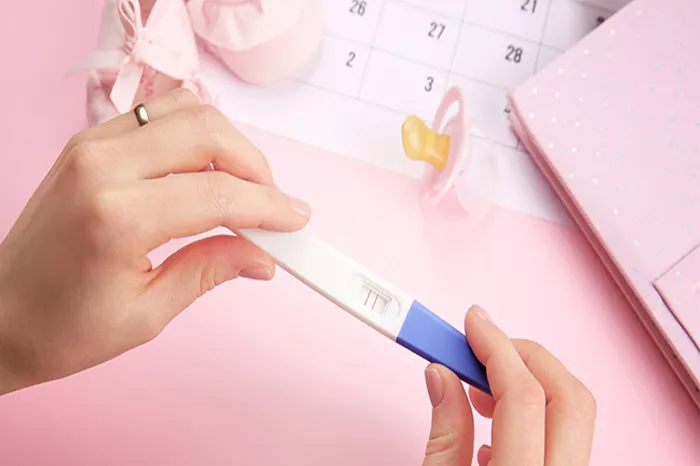Pregnancy tests are a vital tool for individuals trying to conceive or those who suspect they might be pregnant. With various types of pregnancy tests available in the market, many opt for cheaper versions due to their affordability. However, there is often skepticism regarding the effectiveness and accuracy of these cheaper tests. This article aims to explore how early cheap pregnancy tests can work, providing detailed insights into their functionality, accuracy, and reliability.
Understanding Pregnancy Tests
How Pregnancy Tests Work
Pregnancy tests detect the presence of the hormone human chorionic gonadotropin (hCG) in urine. This hormone is produced by the placenta shortly after a fertilized egg attaches to the uterine lining. The levels of hCG increase rapidly in early pregnancy, making it detectable by pregnancy tests.
Types of Pregnancy Tests
There are two main types of pregnancy tests: urine tests and blood tests. Urine tests can be done at home, while blood tests are performed in a healthcare setting. Home pregnancy tests are the most common and include both expensive and cheap options.
The Accuracy of Cheap Pregnancy Tests
Factors Affecting Accuracy
Several factors affect the accuracy of pregnancy tests, including the sensitivity of the test, the timing of the test, and how the test is performed. Sensitivity refers to the test’s ability to detect low levels of hCG. Tests with higher sensitivity can detect pregnancy earlier.
Sensitivity of Cheap Pregnancy Tests
Cheap pregnancy tests often have a lower sensitivity compared to more expensive tests. This means they may require higher levels of hCG to show a positive result. However, many cheap tests are still sufficiently sensitive to detect pregnancy early, typically around the time of a missed period.
How Early Can You Test?
Testing Before a Missed Period
Some pregnancy tests, including certain cheap ones, claim to detect pregnancy up to five days before a missed period. However, the accuracy of these early tests can vary. The levels of hCG in early pregnancy are low and may not be detectable by less sensitive tests.
Testing After a Missed Period
Testing after a missed period is generally more reliable. By this time, hCG levels are higher and more likely to be detected by even the least sensitive tests. Most cheap pregnancy tests are designed to be used from the first day of a missed period onwards.
The Importance of Proper Usage
Following Instructions
To ensure accurate results, it’s crucial to follow the instructions provided with the pregnancy test. This includes using the test at the recommended time of day (usually first thing in the morning when urine is most concentrated) and waiting the correct amount of time before reading the result.
Avoiding Common Mistakes
Common mistakes that can affect the accuracy of the test include not using enough urine, reading the test too early or too late, and not following the instructions carefully. These errors can lead to false negatives or false positives.
SEE ALSO: How Early Pregnancy Test Can Detect HCG?
Cheap Pregnancy Tests vs. Expensive Tests
Comparing Sensitivity and Accuracy
While expensive tests often boast higher sensitivity and additional features (such as digital displays), cheap pregnancy tests can still provide accurate results when used correctly. Studies have shown that many cheap tests are nearly as reliable as their expensive counterparts.
Cost and Accessibility
One of the main advantages of cheap pregnancy tests is their affordability and accessibility. They are widely available at drugstores, supermarkets, and online, making them a convenient option for many individuals.
Understanding Test Results
Interpreting Positive and Negative Results
A positive result, indicated by a line or symbol on the test, usually means pregnancy. However, faint lines can be confusing and may require retesting. A negative result means no hCG was detected, but it doesn’t always mean you’re not pregnant, especially if the test was taken too early.
When to Retest
If you receive a negative result but still suspect you might be pregnant, it’s advisable to wait a few days and retest. Hormone levels double approximately every 48 hours in early pregnancy, so a later test may provide a more accurate result.
Factors Influencing Early Detection
Individual Variations in hCG Levels
Individual variations in hCG levels can influence how early a pregnancy test can detect pregnancy. Some women produce hCG rapidly, while others may have slower increases. This variability can affect test results, particularly when testing very early.
Timing of Implantation
The timing of implantation (when the fertilized egg attaches to the uterine lining) also affects hCG production. Implantation typically occurs 6-12 days after ovulation. Testing before implantation may result in a false negative.
Conclusion
Cheap pregnancy tests can be effective and reliable when used correctly. While they may not be as sensitive as more expensive tests, they can still detect pregnancy around the time of a missed period. Understanding how these tests work, their limitations, and proper usage can help ensure accurate results.
If you have concerns about your test results or experience symptoms of pregnancy despite a negative test, consult a healthcare professional. They can provide more accurate testing and guidance based on your individual situation.
In conclusion, cheap pregnancy tests offer an accessible and cost-effective option for early pregnancy detection. By following the instructions carefully and considering the factors that influence test accuracy, you can confidently use these tests to determine your pregnancy status.


